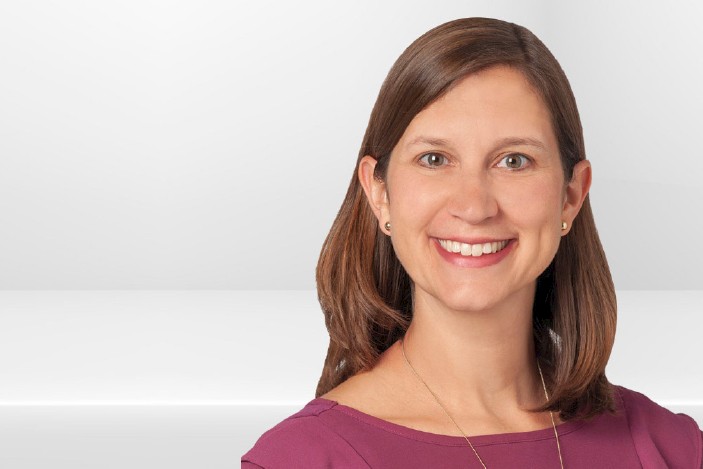
Healthcare Hero: Kate Eshleman, Psy.D.
Welcome back to Healthcare Heroes! This month’s Healthcare Hero is Kate Eshleman, Psy.D., from the Cleveland Clinic Children’s Sibling Outreach Program. Camp has recently partnered with them to provide a virtual campfire this fall for families participating in the program. We are excited to build this partnership and watch it grow. Programs like Sibling Camp are important because a serious illness affects the whole family, including siblings, who often have different psychosocial needs from their sibling with a diagnosis. Keep reading to learn more about the Sibling Outreach Program and why programming for siblings of children with serious illnesses is important.
What programs does the Sibling Outreach Program provide?
The goals of the program include distributing education materials to parents and siblings to assist with adjustment and expectations throughout the treatment process, social events designed for siblings of different ages to interact with other siblings, opportunities for therapeutic interventions, and ongoing emotional and educational support during treatment and beyond. Activities have included a pumpkin painting activity in partnership with The Gathering Place, a sibling shoe design event with Project Outrun, an outing to the Greater Cleveland Aquarium, and a Sibling Symposium with Nancy Cincotta, MSW, LCSW, MPhil, ACSW.
What services do each of the disciplines involved in the program provide?
The disciplines involved in the group include Art and Music Therapy, Child Life, Psychology, and Social Work, with each discipline providing interventions consistent with their training. These have included therapeutic art and music activities during the symposium, access to resources, and individual psychology services available to siblings.
What outcomes are seen after participation in these programs/services?
As the program is relatively new, and has been significantly impacted by the pandemic, we do not have any formal data regarding outcomes. Anecdotally, we receive positive feedback from families about their experiences and always asking for more. Our aims would be to improve sibling understanding of their diagnosed sibling’s experience, offer individualized attention to siblings, create opportunities for families to enjoy special time together, and to promote positive sibling, patient, and family coping.
"Sibling camp provides the opportunity for well siblings to connect with others who have had a similar experience."
What outcomes are seen after participation in these programs/services?
As the program is relatively new, and has been significantly impacted by the pandemic, we do not have any formal data regarding outcomes. Anecdotally, we receive positive feedback from families about their experiences and always asking for more. Our aims would be to improve sibling understanding of their diagnosed sibling’s experience, offer individualized attention to siblings, create opportunities for families to enjoy special time together, and to promote positive sibling, patient, and family coping.
How are the psychosocial needs of children with cancer and their siblings different?
During treatment, understandably, much of parents’ attention is devoted to their ill child. The patient requires frequent outpatient appointments, likely inpatient admissions, and additional attention at home. While we know that these events impact the child diagnosed with and treated for cancer and/or malignant blood disorders (we offer programming for patients, as well), the disruption to the family’s life and routine, and a range of emotions such as worry about the diagnosed sibling and worry about self, anger at the situation/the diagnosed sibling/parents, sadness, and/or grief related to loss of the life and experiences the family was previously sharing, are just a few emotions a well sibling may experience. It is important to acknowledge the range of emotions and behaviors that would not be unexpected in a well sibling in this situation, and find appropriate ways to support the well sibling, and entire family, through those.
How do programs like sibling camp at Flying Horse Farms benefit the siblings of children with cancer and/or the whole family?
When a child is diagnosed with cancer, many times there is a community of support, both emotional and tangible, created for that child. Gifts, activities, and attention are abundant for the diagnosed child, though often not for the well sibling(s). Programs such as the sibling camp provide that specialized attention to the siblings, that otherwise may not be readily available. Further, most children do not have a sibling diagnosed with cancer, and well siblings often feel isolated and alone through the experience. Sibling camp provides the opportunity for well siblings to connect with others who have had a similar experience. Finally, in their world that has been so disrupted, the opportunity to attend camp creates some normalcy, where the focus is on being a kid rather than on appointments, medications, and side effects.
If someone is interested in learning more about the Sibling Outreach Program, who should they contact?
For more information, you can email .
